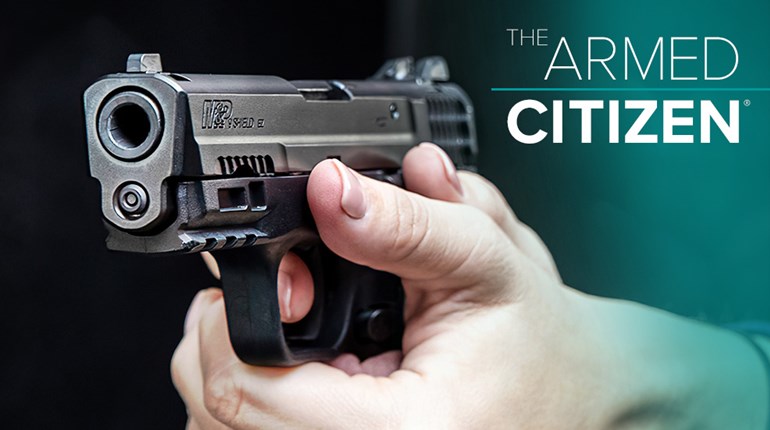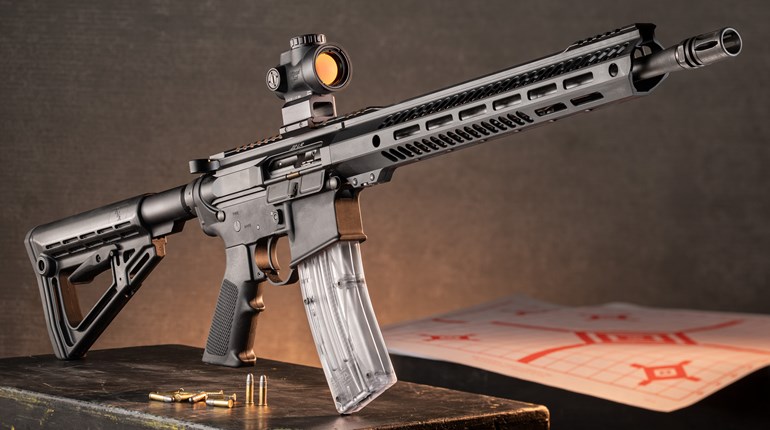
In their fervor to destroy the Second Amendment, gun-control advocates seem willing to shred the First Amendment along with it.
NRA is currently before the U.S. Supreme Court in National Rifle Association of America v. Vullo. In that case, NRA alleges New York officials used their regulatory authority to target the organization to suppress its First Amendment-protected pro-Second Amendment advocacy. The alleged conduct is such a threat to free speech that NRA has even received the support of the American Civil Liberties Union in fighting the case.
Equally brazen is gun-control advocates’ assault on the firearms industry’s First Amendment rights.
In April 2022, gun-control groups filed a petition with the Federal Trade Commission claiming that any suggestion by the firearms industry that firearms provide protection to their owners or make their homes safer is tantamount to false advertising and should be curbed. In July 2022, California Gov. Gavin Newsom (D) signed AB2571, which purports to ban all firearms-related advertising that a minor (those under the age of 18) might find attractive.
Further, gun-control advocates have used suspect litigation to chill firearm industry speech. Multiple courts have endorsed the idea that the way in which a firearm is advertised can offer an end run around the Protection of Lawful Commerce in Arms Act (PLCAA).
Longtime gun-rights supporters will recall that the PLCAA was enacted to protect the U.S. firearms industry from a concerted attack by gun-control advocates, tort attorneys and anti-gun jurisdictions seeking to bankrupt the industry with dubious litigation. This federal law codified the longstanding tort principle that a person or entity cannot be held responsible for a third party’s criminal acts. Put another way, law-abiding gun companies can’t be held liable for the third-party criminal misuse of their products, just like General Motors isn’t held responsible for the actions of drunk drivers.
On Jan. 22, a panel for the U.S. District Court of Appeals for the First Circuit revived a lawsuit brought by the Mexican government against prominent members of the U.S. firearms industry. In so doing, the court endorsed Mexico’s allegation that members of the firearms industry “design and market their guns in such a way as to make them attractive to the illegal market,” and that this would get plaintiffs around the PLCAA. The opinion stated, “Defendants’ marketing materials depict their weapons in use by or in proximity to military and law enforcement personnel and contain other references to military and law enforcement.”
Many law-abiding gun owners will find it self-evident why gun companies stress the suitability of their products for professional use. Forget the fact that all kinds of products are advertised as meeting the qualities for professional service and how that information may be even more important in relation to potentially life-saving tools like firearms. Ordinary Americans use firearms for some of the same purposes as the military and law enforcement—to protect and defend themselves and their communities.
Consider, a November 2023 NBC News national poll reported that “More than half of American voters—52%—say they or someone in their household owns a gun.” In June 2023, Pew Research Center asked gun owners about the reasons they own a firearm. Ninety-one percent cited protection as a reason they own a gun.
Research by economist John R. Lott has shown that there are nearly 22 million carry-permit holders across the country. Multiple academic surveys suggest that Americans use firearms for defense more than a million times per year.
Moreover, ordinary gun owners employing firearms for some of the same reasons as professionals isn’t just popular, it’s protected by the U.S. Constitution. U.S. Supreme Court Justice Antonin Scalia’s opinion in District of Columbia v. Heller (2008) made clear, “the inherent right of self-defense has been central to the Second Amendment right.” In striking down the federal enclave’s handgun ban, Scalia cited “the need for defense of self, family, and property.”
Given this set of facts, it would be bizarre to conclude that advertising stressing the professional suitability of certain firearms is aimed at some clique of foreign criminals rather than the millions of law-abiding Americans who use firearms for self-defense.
In the context of government regulation, the U.S. Supreme Court has made clear that “commercial speech does not fall outside the purview of the First Amendment.” That case, Lorillard Tobacco Co. v. Reilly (2001), explained, “a speech regulation cannot unduly impinge on the speaker’s ability to propose a commercial transaction and the adult listener’s opportunity to obtain information about products.” Clearly, anything restricting companies from advertising about the professional quality of their firearms would deprive law-abiding gun owners of the opportunity to obtain vital information about constitutionally protected products.
Some court-watchers have predicted a favorable outcome for NRA and free speech in our Supreme Court case. Even if that comes to pass, there will be plenty more work to do to vindicate the pro-gun community’s First Amendment rights.

































